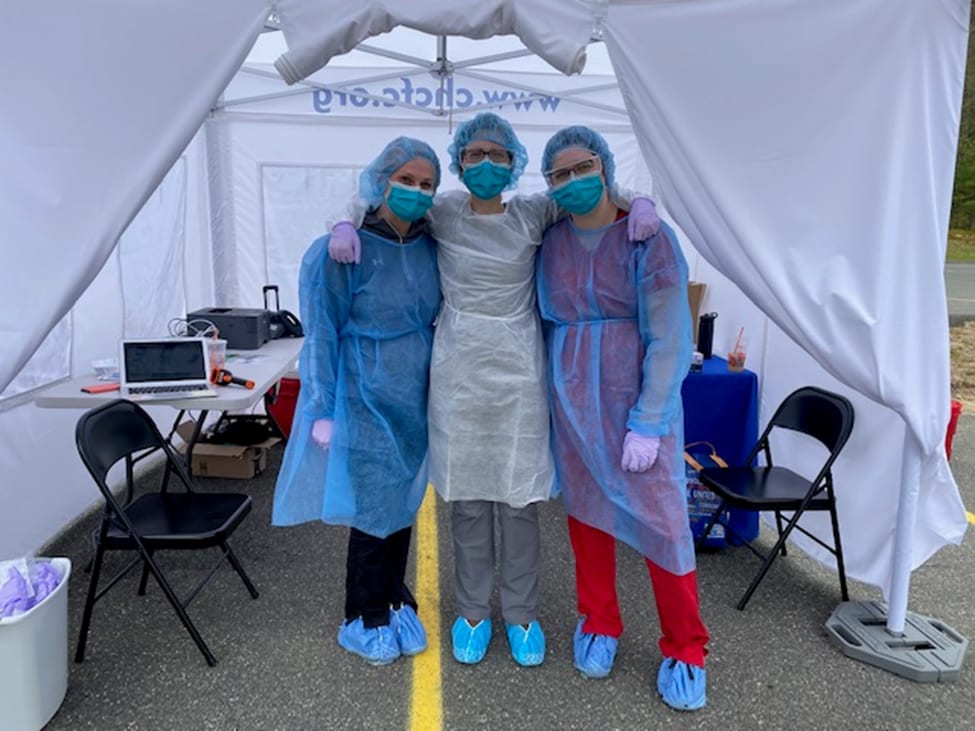June 11, 2020 Community Stories
Not a Single Day Without Health Care
It was early March when a huge challenge confronted the leaders of the Community Health Center of Franklin County (CHCFC). How could they continue to care for their 8,000 patients when the coronavirus forced them to close their physical space? Face-to-face care was no longer an option.
Remarkably, the Health Center achieved the improbable: In the last three months, they haven’t stopped health care services for a single day.
A grant from the COVID-19 Response Fund for the Pioneer Valley helped make it possible. The funds enabled the Health Center to speedily adopt a telehealth model, where they could conduct most medical appointment by phone and video conference, buy computers for staff, and provide IT assistance to set up home offices.
CHCFC’s Rachel Katz said, “We would not have been able to move as quickly as we did without the grant.” Katz, a family nurse practitioner and lead clinician for addiction treatment programs, had been at the center for about a month when the crisis hit.
“Our priorities were to keep our staff safe and to keep providing life-spanning primary care,” she said. That includes sexual and reproductive health, behavioral health, chronic disease management, diagnostic screenings, laboratory services, and specialized care for opioid addiction. “We were able to move 99% of our staff off-site—including providers—without sacrificing care.”

After a slight dip in appointments during the first telehealth week, “Our appointments have stayed steady,” said Katz. Patients have adapted to telehealth, and “We’ve seen a huge increase in the number of calls. Nurses have been slammed addressing patients’ concerns and worries, as well as ruling out COVID-19.” If people are COVID symptomatic, the health center sees them in person.
The Health Center has done COVID testing throughout the crisis in its Greenfield and Orange offices and with drive-through tests. “In three weeks, we did 300 tests,” said Katz.
As expected, patients’ mental health concerns increased. Staff working from home have been proactively calling all patients who have ever screened for depression, to see how they’re doing and what they need. “People really appreciate that we’re thinking of them.”
The Health Center serves a diverse community, including working class people, professionals, people who are homeless or use drugs, farmworkers, and many children. With its deep commitment to community health, the center was determined to keep up with its patients’ diverse needs, particularly those in recovery.
Because federal and state regulations have relaxed during the pandemic, said Katz, “We can subscribe suboxone without in-person visits, give people packets to take home, and pharmacies can provide refills. It’s kind of ground-breaking, and I hope we can bring some of these practices forward into the future.”
Innovation right now is a necessity, but it may also improve the health care of the future. That counts as a silver lining.